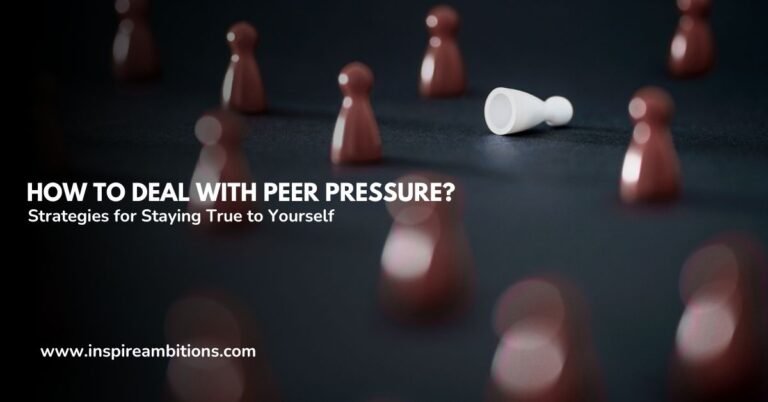बायोडाटा लेखन युक्तियाँ 2024 - कौशल सफलता से विशेषज्ञ सलाह
Resume writing is a critical aspect of job hunting, and getting it right to land your dream job is essential. With the job market becoming increasingly competitive, you must ensure that your resume stands out. The year 2023 brings new challenges and opportunities, and updating your resume with the latest trends and tips can help you stay ahead of the curve.
This article will explore some of the latest resume-writing tips for 2023. We will cover everything from formatting to content, ensuring your resume is optimized for success. Whether you’re a recent graduate or an experienced professional, these tips will help you create a resume that showcases your skills and experience in the best possible light. So, let’s dive in and discover how you can create a winning resume in 2023.
Resume Writing Tips
Let’s write it!
Understanding Resume Formats
When writing a resume, choosing the correct format is crucial. Your design can affect how potential employers perceive your skills and experience. Here are some of the most common resume formats:
Chronological Resume Format
The chronological resume format is the most traditional. It lists your work experience chronologically, starting with your most recent job. This format best suits those with a consistent work history who want to showcase their career progression.
Functional Resume Format
The functional resume format focuses on your skills and accomplishments rather than your work history. It groups your skills into categories and highlights your achievements. This format is ideal for those with gaps in their work history or who are changing careers.
Hybrid Resume Format
The hybrid resume format combines elements of both the chronological and functional formats. It highlights your skills and accomplishments while listing your work experience in reverse chronological order. This format best suits those who want to clearly and concisely showcase their skills and experience clearly and concisely.
Resume Formatting
No matter which format you choose, paying attention to resume formatting is essential. This includes using clear and easy-to-read fonts, keeping your resume to one or two pages, and using bullet points to highlight your achievements. A well-formatted resume can significantly affect how potential employers perceive your skills and experience.
In summary, understanding the different resume formats and choosing the right one for your skills and experience is essential when creating a successful resume. Paying attention to resume formatting ensures that your resume stands out and showcases your skills and accomplishments in the best possible light.
Tailoring Your Resume
Tailoring your resume to the job you’re applying for is crucial in 2023. With the job market being more competitive than ever, making your resume stand out from the rest is essential. One of the best ways to do this is by tailoring your resume to the job description.
When tailoring your resume, reading the job description thoroughly and identifying the skills and qualifications required for the target role is essential. Once you’ve identified the critical skills and qualifications, you can tailor your resume to highlight your relevant experience and achievements.
Job postings are an excellent source of information when tailoring your resume. Look for keywords and phrases used frequently in the job posting and incorporate them into your resume. This will help your resume get past the Applicant Tracking System (ATS) and into the hands of the hiring manager.
Relevant information is critical when tailoring your resume. Focus on the experience and achievements most relevant to the target role. Don’t include irrelevant information that may distract from your qualifications for the job.
In summary, tailoring your resume is essential in 2023. By identifying the skills and qualifications required for the target role and incorporating them into your resume, you can make your resume stand out from the rest. Remember to read the job description thoroughly, use job postings as a source of information, and focus on relevant information in your resume.
Highlighting Your Achievements
When writing a resume, it’s essential to highlight your achievements. This section is where you can shine and show potential employers your capabilities. Here are a few tips on how to effectively highlight your achievements:
- Use bullet points to make your achievements stand out
- Quantify your achievements with numbers, percentages, or dollar amounts
- Use action verbs to describe your accomplishments
- Focus on results and outcomes, not just tasks
For example, instead of saying, “Managed a team of 10 people,” display “, Managed a team of 10 people that increased sales by 20% in one quarter.” This shows the employer that you not only managed a team but you also achieved a specific result.
Another way to highlight your achievements is by including any awards or accolades you’ve received. This can be anything from Employee of the Month to industry-specific awards. Be sure to include the name of the prize, the date you received it, and a brief description of why you received it.
Overall, highlighting your achievements is crucial to writing a successful resume. By effectively communicating your accomplishments, you can set yourself apart from other candidates and show potential employers your capabilities.
Skills Section
Your skills section is one of the most essential parts of your resume, as it provides a quick snapshot of your abilities and expertise. Here are some tips to make sure your skills section stands out:
- Include hard and soft skills: Hard skills are technical abilities acquired through training or experience, while soft skills are personal attributes that make you a good employee. Ensure you include both skills in your resume to show you are well-rounded and capable.
- Tailor your skills to the job: When you apply, read the job description carefully and tailor your skills section to match the position’s requirements. This will show the employer you have the specific skills they seek.
- Use bullet points: Use bullet points to make your skills section easy to read and scan. This will allow the employer to see your skills and qualifications quickly.
- Highlight your most relevant skills: If you have many skills, highlight the ones that are most relevant to the job you are applying for. This will help the employer see you are a good fit for the position.
- Include transferable skills: Transferable skills can be applied to various jobs and industries. Ensure you include these in your skills section to show that you are adaptable and versatile.
By following these tips, you can create a skills section that showcases your abilities and makes you stand out to potential employers.
Work Experience and Career History
When writing your work experience and career history section, it’s essential to highlight your relevant positions, responsibilities, and experience. This section should be easy to read and understand, so use bullet points and tables to organize your information.
Start with your most recent or current position and work your way backwards. For each position, include the following information:
- Job title and company name
- Dates of employment
- Key responsibilities and achievements
Use strong action verbs and be specific about your accomplishments. For example, instead of saying “managed a team,” say “led a team of 10 employees to exceed quarterly sales goals by 20%.”
If you have much work experience, consider only including the most relevant positions. You don’t need to list every job you’ve ever had.
Remember to tailor your work experience section to the job you’re applying for. Highlight the skills and experiences that are most relevant to the position.
In summary, your work experience and career history section should showcase your relevant positions, responsibilities, and experience in a clear and organized manner. Use bullet points, tables, and decisive action verbs to make your accomplishments stand out.
Education and Certificates
When writing a resume, including your education and certificates is crucial. It showcases your academic achievements and highlights your skills and expertise in a particular field.
Start by listing your highest degree or diploma first, followed by the others in reverse chronological order. Include the name of the institution, the degree or certificate earned, and the date of graduation or completion. If you have any relevant coursework or honours, you can include them too.
It’s also important to mention any certifications you have earned in your field. Certifications demonstrate that you have the knowledge and skills required to perform a specific job. List the name of the certificate, the issuing organization, and the certification date.
Remember to keep your education and certificates section concise and relevant to the job you are applying for. Avoid including irrelevant information that may distract from your qualifications.
Resume Keywords and ATS
When submitting your resume online, it’s essential to understand how applicant tracking systems (ATS) work. ATS software helps recruiters and hiring managers filter resumes quickly and efficiently.
One way to ensure your resume gets noticed by an ATS is to use high-priority keywords. These words and phrases are most relevant to the job you’re applying for. To identify these keywords, carefully review the job description and look for repeated terms or skills required for the position.
However, it’s essential to use these keywords strategically. Don’t just cram them into your resume without context. Instead, incorporate them naturally into your work experience and skills sections.
Another consideration with ATS is formatting. To ensure your resume is readable by the software, avoid using images or graphics and stick to plain text. Use standard fonts and avoid using too many different font sizes or styles.
By understanding how ATS works and using relevant keywords strategically, you can increase your chances of getting noticed by recruiters and landing your dream job.
Contact Information
Your resume should include your contact information, so potential employers can easily reach you. This information should be placed at the top of your resume and be easy to read. Here are some tips for including contact information on your resume:
- Full name: Use your full name, not just your first name or nickname.
- Email address: Use a professional email address that includes your name, such as firstname.lastname@email.com. Avoid using email addresses that are too personal or inappropriate.
- Phone number: Include a phone number where you can be reached. Make sure your voicemail message is professional.
- Mailing address: This is optional, but including your city and state can be helpful if you are applying for jobs in a specific area.
Regarding email addresses, check your inbox regularly and respond to emails promptly. You don’t want to miss a job opportunity because you didn’t check your email.
Also, be careful about sharing too much personal information on your resume. You don’t need to include your date of birth, social security number, or any other sensitive information. Keep your contact information simple and professional.
Online Presence and Social Media
In today’s digital age, having a solid online presence and social media presence is essential for job seekers. Employers often look at an applicant’s online presence before making a hiring decision, so ensuring your online presence reflects your professional image is necessary.
One of the most essential platforms for job seekers is LinkedIn. It’s a professional networking site that allows you to showcase your skills, experience, and achievements. Ensure your LinkedIn profile is complete and up-to-date and reflects your professional goals and aspirations.
Social media platforms like Instagram can also be helpful for job seekers, but it’s essential to use them wisely. Make sure your Instagram profile is professional and reflects your interests and hobbies. Avoid posting anything that could be considered offensive or controversial.
Regarding your online presence, it’s essential to be consistent across all platforms. Use the same profile picture and bio on all your social media accounts, and make sure your online persona reflects your professional image.
In summary, having a solid online presence and social media presence is essential for job seekers in 2023. Ensure your LinkedIn profile is complete and up-to-date, and use social media platforms like Instagram wisely. Be consistent across all platforms, and make sure your online persona reflects your professional image.
The Role of AI in Resume Writing
Artificial intelligence (AI) is revolutionizing how we approach many aspects of our lives, including resume writing. AI-powered tools are becoming increasingly popular for job seekers who want to create a stand-out resume.
AI algorithms can analyze job descriptions and identify the skills and experience employers seek. This means job seekers can tailor their resumes to specific job postings, increasing their chances of getting noticed by hiring managers.
Machine learning algorithms can also analyze resumes to identify patterns that lead to successful job applications. By analyzing thousands of resumes and job postings, these algorithms can determine which keywords, formatting styles, and other factors will most likely lead to a job offer.
However, it’s important to remember that AI is not a magic solution to resume writing. While AI-powered tools can undoubtedly help job seekers create more effective resumes, they are not a substitute for human judgment and expertise. Job seekers should still take the time to carefully craft their resumes, focusing on their unique skills and experience.
In conclusion, AI is playing an increasingly important role in resume writing. By leveraging the power of machine learning algorithms, job seekers can create resumes tailored to specific job postings and optimized for success. However, using these tools with human expertise is essential to ensure your resume accurately reflects your unique skills and experience.
Trends and Future of Resume Writing
Resume writing has evolved over the years, and it continues to do so. In 2023, the following trends are shaping the future of resume writing:
- Remote work: With the rise of remote work, job seekers must highlight their ability to work independently and communicate effectively with their team. Resumes should emphasize skills such as time management, organization, and collaboration tools like Zoom and Slack.
- Freelance work: Freelance work is becoming more common, and resumes should reflect this trend. Job seekers should highlight their ability to manage multiple projects, work with different clients, and market their services.
- Cybersecurity: As cyber threats continue to increase, job seekers should demonstrate their knowledge of cybersecurity best practices. Resumes should highlight any relevant certifications or training in cybersecurity.
- Digital marketing: Digital marketing is a growing field, and job seekers should showcase their skills in areas such as SEO, social media, and content creation. Resumes should highlight any relevant experience or certifications in these areas.
Overall, the future of resume writing is about highlighting the skills and experiences relevant to the job at hand. Job seekers should focus on customization and tailoring their resumes to each job they apply for rather than using a one-size-fits-all approach. Job seekers can create resumes that stand out by staying up-to-date with the latest trends and technologies.
अक्सर पूछे जाने वाले प्रश्नों
What are some effective resume hacks for 2023?
- Use keywords relevant to the job description
- Customize your resume for each job application
- Highlight your achievements and quantify them
- Use a modern template and design
- Include a professional summary or objective
What are the best tips for creating a standout resume in 2023?
- Keep it concise and relevant
- Use bullet points and white space effectively
- Use active verbs and avoid passive voice
- Highlight your most relevant experience and skills
- Use numbers and metrics to demonstrate your impact
What should college students keep in mind when writing their resumes?
- Highlight relevant coursework and extracurricular activities
- Emphasize transferable skills gained from part-time jobs and internships
- Use a functional resume format if you have limited work experience
- Include a vital education section with your GPA and relevant coursework
What are some dos and don’ts for resume writing in 2023?
DO:
- Customize your resume for each job application
- Use a modern template and design
- Highlight your achievements and quantify them
- Use keywords relevant to the job description
- Proofread and edited for errors
DON’T:
- Use a generic objective statement
- Include irrelevant work experience or skills
- Use passive voice or vague language
- Use an outdated template or design
- Submit a resume with errors or typos
What do employers look for in a resume in 2023?
- Relevant experience and skills
- Quantifiable achievements and results
- A professional and modern design
- Customization for the job description and company culture
- Clear and concise language and formatting
How far back should one go when listing experience on a resume in 2023?
Generally, you should include the past 10-15 years of relevant work experience on your resume. However, if you have experience from more than 15 years ago, that is still relevant to the job you are applying for; you can include it.







